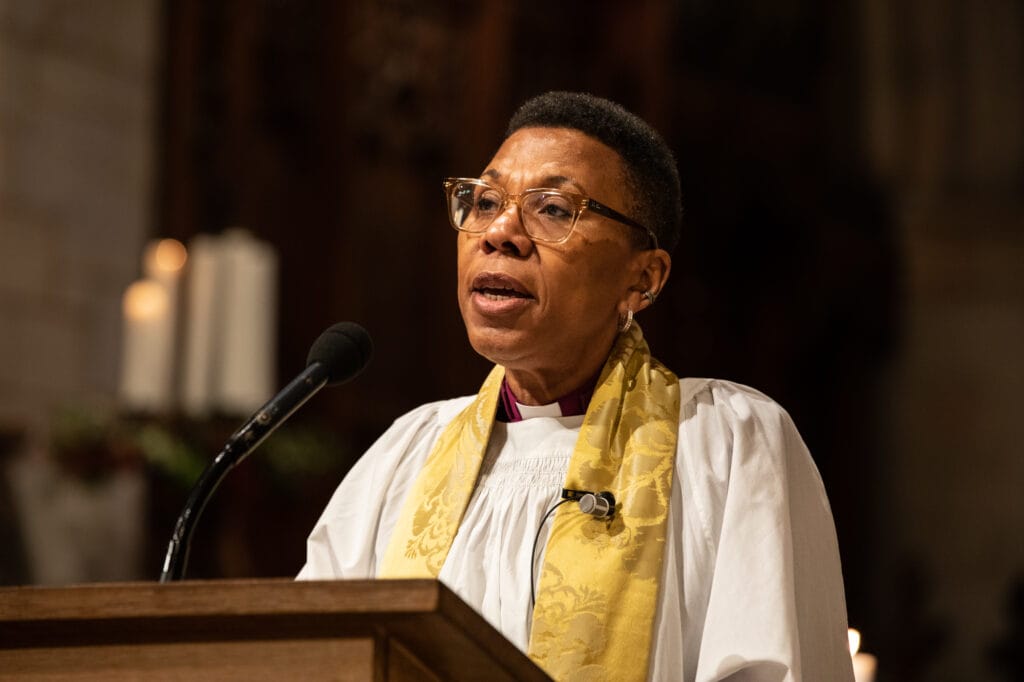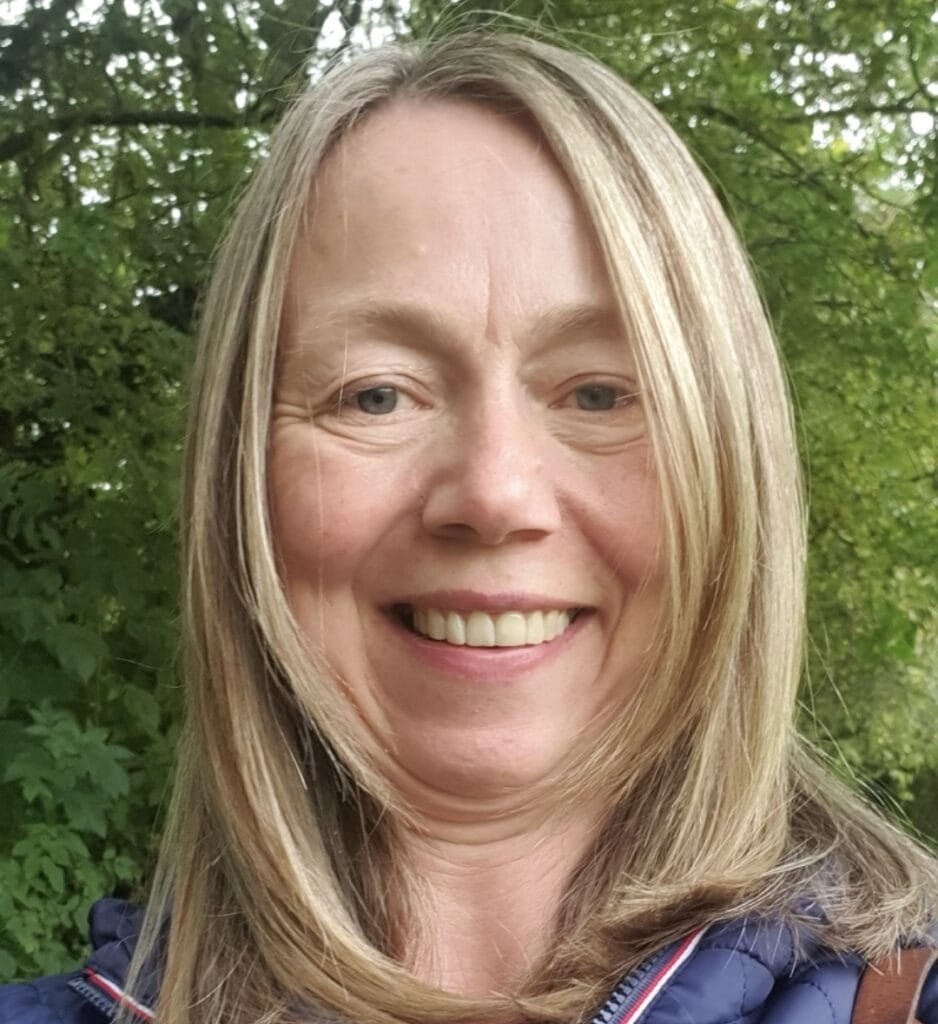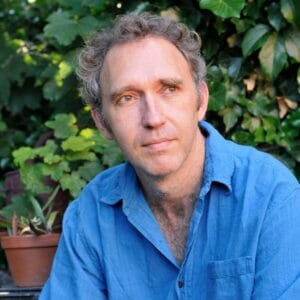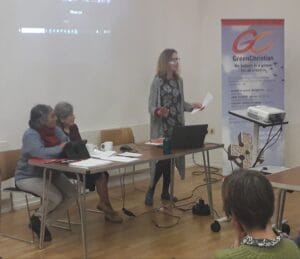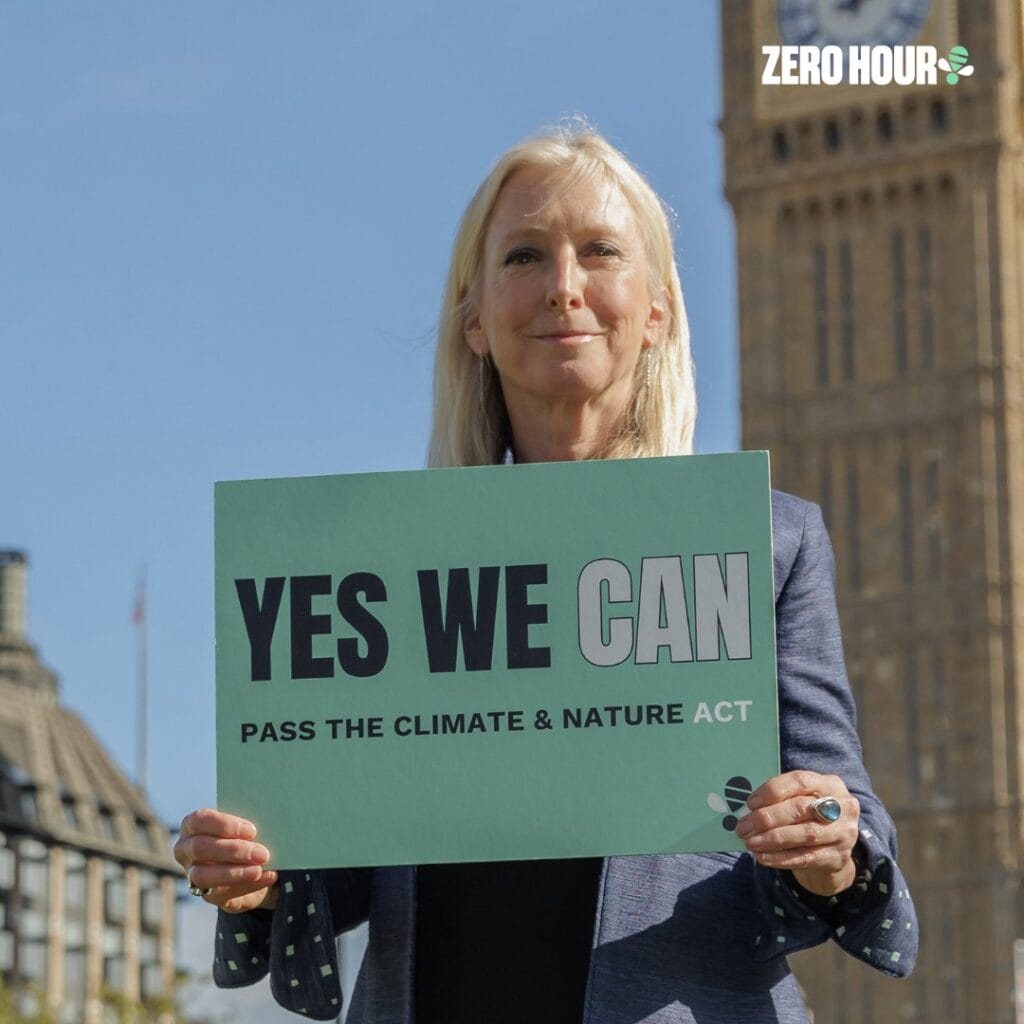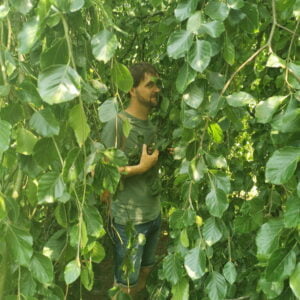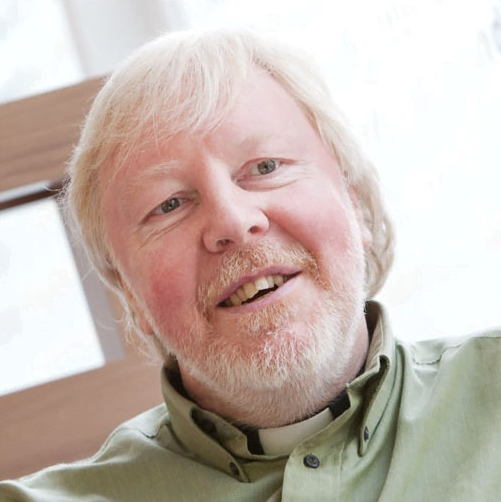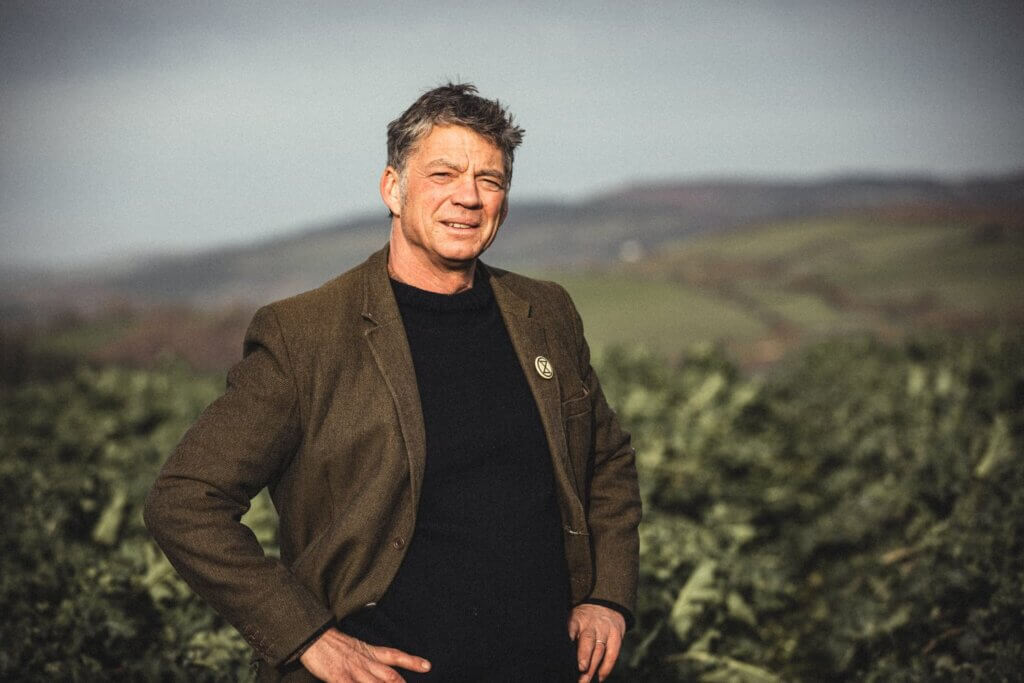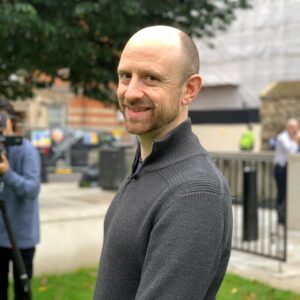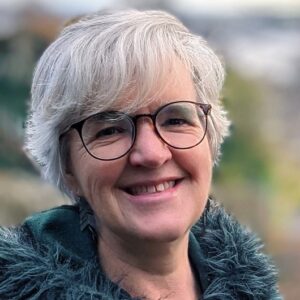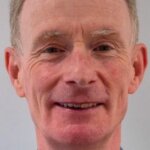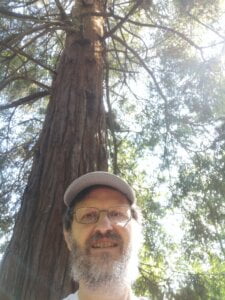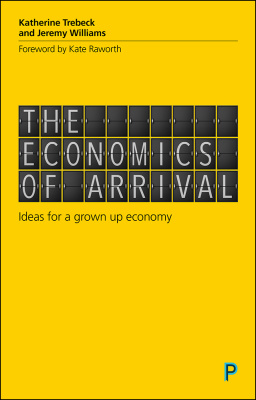Older Online Talks and Workshops
All our previous Green Christian Workshops are available on YouTube.
All our previous Joy in Enough talks are available on YouTube.
Wednesday 19 February 2025 – 7pm – A Community Conversation about Food
The Food Group encourages Christians to think more biblically about food. This means everything from our LOAF principles (Local, Organic, Animal-friendly and Fairly Traded), to attitudes towards fasting, saying grace, community veg growing, going plant-based, sharing with the needy, and the affordability of LOAF foods in a cost-of-living crisis. It could also encompass views on some novel technologies such as lab-grown meats and genetic modification.
In this session participants discussed ideas that we could be working on in our churches and communities.
It was run as a Community Conversation as an ‘Open Space‘ event, which was a first for Green Christian (though not for two of the facilitators).
Thursday 6 February – No Faith in Fossil Fuels – Let’s Stop New Oil and Gas in 2025
Co-hosted by Tearfund, Christian Aid, Student Christian Movement, Laudato Si, Operation Noah, Christian Climate Action, Green Christian, Eco-congregation Scotland and Uplift.
Monday 3 February 2025 – 7pm – Book Launch with Deborah Tomkins and Weatherglass Books
Deborah is a Trustee of Green Christian and former Co-Chair. In 2024, Deborah’s novella Aerth was joint winner of Weatherglass Books’ Inaugural Novella Prize, judged by multiple award-winning literary novelist Ali Smith. Aerth is published on 25 January 2025.
In this online event, Green Christian welcomes Neil Griffiths (publisher, Weatherglass Books) and Deborah, who will talk about the book and answer audience questions.
Informed by Deborah’s Christian faith, Aerth is a story about migration, climate, conspiracy theories and interplanetary homelessness.
Ali Smith says: “Deep-forged, witty and resonant, this dimensionally stunning novella deals with dystopia and hope in a way that reveals them as profoundly related… Funny, terrifying, humane, this is a thrilling journey in a story the size of a planet – no, the size of several, all of them altogether strange and uncannily familiar.”
Deborah’s novel The Wilder Path won the Virginia Prize for Fiction (Aurora Metro Books) in 2024, and will be published in May 2025.
Wednesday 22 January 2025 – 7pm – History for Tomorrow: Joy in Enough talk with Roman Krznaric
John Payne will be in conversation with Roman Krznaric, the Oxford-based social philosopher, about his new book History for Tomorrow: Inspiration from the Past for the Future of Humanity. The conversation will cover the main themes of the book, but particularly in relation to climate change and alternative economic models.
History for Tomorrow is an empowering book, arguing that we have much to learn from history about how to tackle the challenges we face today. Krznaric focuses on ten existential challenges (including climate change, weakening of democracy, social media polarisation) and how episodes from the past can help us to navigate them. Underlying the book is the notion that it’s not technology that will solve the world’s problems, but human ingenuity and our ability to organize ourselves to make change.
Wednesday 15 January 2025 – 6.30pm – Climate Change and the Transformative Power of Moral Injury Repair
In collaboration with St James’s Piccadilly
As part of St James’s Piccadilly’s earth justice work, Dr. Rita Nakashima Brock and the Rev. Dr. Susan Diamond will present definitions of moral injury as it relates to climate change and Christian theology and engage in conversation with Deborah Colvin and attendees.
Find out more
Zoom link is here
Please note the earlier start time of 6.30pm
Wednesday 8 January 2025 – 7pm – Let’s plan 2025!
Watch this video to find out a bit about what Green Christian is offering in 2025.
The themes range widely: our activities around keeping fossil fuels in the ground; revitalising our LOAF campaign on food; ideas on what you might do to get your own church thinking and acting more on environmental issues – including alternative economics with our new Plenty Bite-sized course (part of the Joy in Enough initiative); how to cope with climate anxiety with our Borrowed Time programme.
Wednesday 4 December 2024 – 7pm – Yes we CAN!
In collaboration with Operation Noah, Christian Climate Action and other groups to be announced.
Backing the Climate and Nature Bill’s second reading: why your MP needs to be there and what you can do to help. With Jamie Russell of Zero Hour and theology from Paul Kunert, author of Jesus Died to Save the Planet.
The CAN Bill is the only proposed legislation that addresses the full extent of the climate and nature crisis in line with the most up-to-date science.
We have a golden opportunity – if we act fast – to get the Climate and Nature Bill into law. Come and hear why as Christians this matters to us and how we can help make it happen.
Jamie Russell is grassroots manager at Zero Hour, the campaign supporting the Climate and Nature Bill. He is a veteran environmental campaigner and lives in Shrewsbury, Shropshire.
Paul Kunert is the author of Jesus Died to Save the Planet and has been working in Africa’s electricity sector for the last 25 years in various senior leadership roles, developing, financing, building, and managing major power plants in countries all over the continent. He is a chartered accountant and has a degree in economics and politics. He is married to Tara and they have three grown-up children.
Wednesday 20 November – 7pm – The Affluent and the Climate & Nature Crises: a focus for advocacy and hope with Ian Christie
Ian Christie is a co-investigator at the Centre for Understanding Sustainable Prosperity (CUSP). He writes…..“The climate crisis and the destruction of biodiversity affect the poor and vulnerable of the world disproportionately. And the rise in greenhouse gas emissions and large-scale development are driven disproportionally by the interests, decisions and values of the most affluent people on Earth. This means, among hundreds of millions of people, ME.
If we are to get near to a tolerable stabilisation of the climate system and the beginnings of nature recovery, we need the support, resources and commitment of the affluent and the very wealthy, or at least of a critical mass of such people, worldwide and especially in the West. However, this means that such people need to undergo a process of what the Pope has called ecological conversion, embracing a greater contribution to the common good and willingly making what will feel to them like sacrifices of money, time and consumption. How can this happen?
I don’t know – but I have a few ideas.”
Wednesday 6 November 2024 – 7pm – Composing Green Liturgies
Mark Porter and Andii Bowsher in conversation explore issues that you may want (or need) to keep in mind when devising worship and liturgy relating to environmental and climate matters. Mark brings a musical lens while Andii balances with ritual and words in worship.
Mark Porter has published numerous books and articles on Christian music and worship, including his most-recent publication For The Warming of the Earth, which came out earlier this year with SCM Press. He is programme chair of the Christian Congregational Music: Local and Global Perspectives conference and currently works as a lecturer and researcher at the University of Erfurt in Germany.
A trustee of Green Christian, Andii has in the past taught theological students about leading worship and written many a liturgy – increasingly with climate and environmental issues in view (see ourcommonprayer.edublogs.org). Currently Andii paid-works as a university chaplain and a very part time practical theology lecturer.
See Mark’s blog post – Liturgies for a world in crisis.
Wednesday 16 October 2024 – 7pm – Guy Singh-Watson of Riverford Farm talks to us about the pressures and rewards of commercial organic farming, and about how people can support these businesses.
Guy Singh-Watson has over the last 37 years taken Riverford from one man and a wheelbarrow delivering homegrown organic veg to friends, to a national veg box scheme delivering to 70,000 customers a week. Tired of meetings, brands and the assumption that greed is our predominant motivation, Guy converted the business to employee ownership in 2018, using the proceeds to buy a small farm and return to growing organic vegetables.
In common with many of Riverford’s co-owners, Guy is an advocate of using business to shape a part of the world, however small, to be kinder, more considerate, and sustainable; more like the world most of us want to live in. A self-professed ‘veg nerd’ Guy’s weekly newsletters connect people to the farm with refreshingly honest accounts of the trials and tribulations of producing organic food, and the occasional rant about farming, and ethical business issues he feels strongly about.
Wednesday 2 October 2024 – 7pm – Power for People
Steve Shaw, Director of Power for People, gives an update on the campaign for a new UK law to accelerate the growth of community-led renewable energy schemes.
In the last Parliament, they brought a cross-party group of 326 MPs on board in support. They now need as many MPs as possible to ask the Government to include community energy in the Great British Energy Bill. Watch the recording to find out how you can help make this happen.
4 September 2024 – Environmental Restorative Justice with Tanya Jones
Tanya lives in Dundee and works as a researcher on justice issues for Green MSP Maggie Chapman in the Scottish Parliament. She is also completing a PhD in global restorative climate justice and has written a chapter for the Palgrave Handbook of Environmental Restorative Justice. Before coming to Scotland, Tanya lived for 12 years in Northern Ireland where she was active in campaigning against fracking and in peace and reconciliation work. She is the book review editor for Green Christian magazine and is involved in the Borrowed Time initiative. Some of Tanya’s writing can be found at https://www.greenlassie.com/
7 August 2024 – FAIRLY TRADED – Price, Power and Pace – what next after 30 years of Fairtrade?
Sarah Brazier, Head of Campaigns at Fairtrade Foundation
Sarah has worked at the Fairtrade Foundation for over 11 years and currently leads their campaigning work, aiming to engage the public in advocacy around fairer trade. Over the years she has worked on campaigns for living wages in cocoa, fairer prices in bananas, and government support for farmers and workers dealing with a climate crisis. After studying post-colonial literature at university, Sarah started campaigning for the trade justice movement with Oxfam in the early 2000s and 24 years later is still passionate about the intersectional impact that fair trade can have on communities across the world.
7pm 10 July 2024 – Special workshop – Peace, Love and Climate Justice
A training workshop to help you help people in your church to engage with our work.
If we are to be peacemakers in the face of growing global conflicts, we must be justice makers.
We have created a workshop that you can use to explore what this means for each of us in shaping our responses to the global climate and environmental crisis. Focusing on the Great Commandments in Mark 12:30-3, it asks questions that connect peace, love and justice.
This is a training session to introduce the workshop, for you to experience it, hear about ways in which you can deliver it yourself, and ask your questions.
7pm 3 July 2024 – ORGANIC – agroecology, regenerative farming, organic farming: what’s the difference?
Richard Kipling, Head of Research at the Sustainable Food Trust, lead our workshop on organic farming.
Richard joined the Sustainable Food Trust in 2021 to oversee research activities, including within the Global Farm Metric and across a range of other projects and focus areas.
Since 2011, his research has included applying quantitative and qualitative methodologies to problems as diverse as guillemot breeding productivity, the pollination niches of buttercups and the research priorities for animal health modelling. His current focus is on implementing change towards more sustainable grassland-based livestock farming.
Prior to joining the SFT, Richard was a Lecturer in Sustainable Systems at Aberystwyth University. He has expertise in high nature value and climate friendly livestock farming. Before gaining his PhD in pollination ecology in 2011, he held positions as a countryside ranger at a number of nationally important UK nature reserves. Away from work, Richard is a keen walker, sea swimmer and writer.
7pm 5 June 2024 – ANIMAL-FRIENDLY – has the church made any progress?
We were delighted to welcome Joyce D’Silva of Compassion in World Farming and author of Animal Welfare in World Religion, to our workshop on the ‘A’ of our LOAF principles. Joyce played a key role in getting recognition of animal sentience enshrined in the European Union Treaties. She received an RSPCA Award for a “very important contribution in the field of animal welfare”.
Special Zoom call on the Climate and Nature Bill
Hear from Zero Hour and Revd Vanessa Elston on why and how churches can support the Climate and Nature Bill.
This Zoom was run in collaboration with Operation Noah and Christian Climate Action.
6pm 15 May Wednesday – Professor Guy Standing talking about his new book ‘The Politics of Time’
Guy Standing is a radical economist and the author of the counter-cultural The Plunder of the Commons and Basic Income. Both of those books looked at what we share and how we could create a more inclusive economy. He talks to us about his new book The Politics of Time. This describes the history of how different eras have regarded time and how there are now a host of inequalities around who has the freedom of their own time and who doesn’t, whose work is recognised as valuable and whose is taken for granted. Many of these inequalities were highlighted during the pandemic. Most importantly, the author describes some of the alternatives. In the final chapter, on ‘the emancipation of time’, as he casts his mind back from an imagined 2030s and the other side of a political transformation.
Wednesday 1 May – LOCAL – defining local boundaries
Vicki Hird will be exploring the case for more locally produced food. Vicki is Strategic Lead on Agriculture at The Royal Society of Wildlife Trusts and was formerly Head of Sustainable Farming at Sustain: The alliance for better food and farming.
Wednesday 17 April – Jeremy Williams and Tony Emerson – Stories to change our world – how fiction can help us create a better future
What is the role of fiction in creating a fairer and greener economy? How can we use stories to open up imaginative possibilities in a world losing its way? Tony Emerson will share insights from his novel Unlikely Alliances, and its hopeful scenario, and why he turned to fiction as a tool in his campaigning; while Jeremy Williams will look at the wider world of climate fiction and novels with Joy in Enough themes.
See here for recommended fiction on the climate and nature crisis.
Wednesday 3 April 2024: LOAF – Food and Faith
This session consists of an introduction from Tim Cooper (Chair of the Food Group) and Cat Jenkins (Food Project Officer) on the project’s aims. Tim and Cat share the various aspects of food and faith that the project is looking at.
Wednesday 27 March – Running out of steam: should Christians welcome the end of fossil fuels? with Revd John Daniels
The fossil fuel age is coming to an end, one way or another. What’s life going to look like afterwards? This talk covers some of the practicalities involved in weaning the UK and the world off the cheap abundance we’ve gotten used to, and poses questions about how Christians can contribute to this life-changing process.
This talk is supported by the Montgomery Trust.
This talk left the attendees wanting to hear more about the implications for us as Christians, so we had a follow-on talk:
Wednesday 6 March 2024 – Why are we blind to toxic waste sites in our countryside?
Revd Paul Cawthorne is a rural Shropshire multiparish vicar who has been working on creation care matters for thirty year, after working abroad and seeing how climate change was impacting on three continents. Back in Shropshire, he uncovered secret government GM crop plantings leading to a national journalism award and exposed a nuclear lobbying initiative on General Synod’s ecological motion. His current research is exploring Monsanto neurotoxic chemical waste dumping, which is still leaking into rivers and estuaries across the UK fifty years on.
In advance of a forthcoming major media initiative, he shares with us a bit about the large scale of this issue for UK ecosystems and how America has led the way on remediation while the UK situation has been strangely dominated by official omerta and responsibility evasion.
Wednesday 21 February 2024 – Joy in a time of crisis – For the darkness and the light are both alike to God
In this talk Helen Stanton draws upon Christian virtue ethics and the apophatic Christian Tradition to encourage the practice of joy and hope in a world that feels on a desperate and destructive trajectory. Her focus is on how God’s work in us can create a place of joy and freedom, even while our eyes are open to the sin and suffering of the world; a joy that transforms.
Helen Stanton has worked in theological education, and the training of clergy, for most of her working life. Currently she is Warden of Holland House, an ecumenical retreat house in Worcestershire.
Wednesday 7 February, 7pm – Haiku-writing
This workshop inspires and challenges us to use creativity to express our deepest feelings and thoughts about the climate crisis. Be guided by Emma Major in using Haiku, a particular form of poetry that uses relatively few words and can be accessible and powerful.
Emma has a written a collection of Haiku expressing much that is true for her about climate grief and climate activism, published by Wild Goose publications, and she will read from this, and tell us about her journey into poetry writing and other forms of creativity.
Emma is a pioneer lay minister, blind wheelchair user, artist and poet. She has poems published in numerous literary magazines and poetry anthologies as well as writing her own collections of poetry, illustrated by her art, on disability, grief, mental health, faith and climate change. You can find Emma online at LLMCalling.com or on social media @emmuk74 where she shares her artwork and poetry to encourage, bless and affirm.
Wednesday 17 January 2024 – Adding insult to injury – offshore finance
Cat Jenkins talks about the ways in which offshore finance centres (and those who make use of them) compound the climate injustices meted out on the global South, by the global North; and she discusses the reasons why campaigning for international corporate tax justice matters to climate-ravaged countries.
Before working in the environmental/social justice sectors, Cat spent some 25 years in offshore finance, variously as a policy adviser to a regulator, risk director of AXA’s offshore life business and a lecturer/author on various financial services and governance issues. She’s now a part-time Administrator for Green Christian; she also works part time for various other UK-based charities, mainly on campaigns and communications. Her first degree is in finance, with post-graduate qualifications in online education and in digital theology.
Wednesday 10 January – Influencing your Community in a time of Planetary Crisis
Graham Wroe examines some of the campaigns he has been involved in and shares what he has learnt from them, giving pointers to how we can help build more climate-resilient communities.
Graham is a retired teacher/lecturer who spent most of his career in inner city Sheffield but also worked as a Mission Partner with CMS in Uganda. Throughout his life Graham has been a campaigner and has worked on many issues such as opposing incineration, saving street trees, green politics, banning Glyphosate, challenging the press and declaring climate and nature emergencies. Today Graham writes for two local newspapers and his blog, Tell the Truth Sheffield and is a carer for his wife. He is an active member of Extinction Rebellion and Sheffield Green Party.
7pm Wednesday 6 December – Climate conversations with John Steley
An exploration around how people can hold two things together in their minds without making connections between them. With over 70% of people in the UK recognising climate disruption is for real how is it they still carry on with climate damaging behaviours? How do we react to the “just had a wonderful holiday in Florida” remark? What are the drivers for behavioural change in individuals and society?
John Steley is a Christian Psychologist in private practice in London. He previously worked in NHS and forensic settings, and with Christian mission and aid workers. He is a Fellow of the Royal Geographical Society and a member of Green Christian.
Wednesday 15 November – Faith and the Economy with Professor Steve McMullen
A conversation on “Faith and the Economy” between John Payne and Prof. Steve McMullen, who is a professor of economics at Hope College in the US, executive editor of the journal Faith & Economics, host of the podcast Faithful Economy, fellow at the Oxford Centre for Animal Ethics, and associate fellow at the Kirby Laing Centre for Public Theology in Cambridge UK. His research interests include inequality, consumerism, education policy, animal and environmental ethics, and theology.
7 November 2023 – Seven Ethics against Capitalism with Oli Mould
Professor of Human Geography (Royal Holloway, University of London), Oli Mould will explore his forward-thinking book Seven Ethics against Capitalism in conversation with John Payne. Hear how he envisions more ethical ways of living towards a fairer society – a “Planetary Commons”. We think it’ll make you think…. After the conversation there will be time for general Q and A from the audience and writer.
1 November 2023 – Fossil-free banking with Rosie Venner
Do you know what your bank is doing with your money you have deposited with them? The top four UK banks have provided £300 billion in finance to fossil fuel companies since the Paris agreement. This workshop explains how we can stand up to this by moving our money to fossil-free banks.
3 October 2023 – Nature Spirituality and the Spiritual Significance of Water with Revd Imogen Nay
Imogen is vicar in the Benefice of St Paul, Cambridge, and is Bishop’s Advisor for Climate in the Diocese of Ely.
She talks about nature spirituality and the spiritual significance of water, giving reference to her love of wild swimming.
27 September 2023 – Zoom Session with Lorna Gold
Dr Lorna Gold as she talks about environmental, climate and economic justice and shares her experiences in taking part in The Letter.
The Letter recounts the experience of 5 very different people speaking for the Poor, the Young, the Indigenous and Science who visit Pope Francis after receiving a letter of invitation from him. None of them are Christian, but all are profoundly affected by their encounter. The film helps us to understand how climate change is already affecting people we don’t encounter in our daily lives. View the trailer.
Lorna is the CEO of FaithInvest and Chair of the Laudato Si’ Movement. Her book Climate Generation – Awakening our Children’s Future can be pre-ordered here.
6 September 2023 – Conservation volunteering for Justice and Peace with Andy Jowitt
Andy has always enjoyed being out with binoculars and close to nature but has been on a steep learning curve over the last five years since taking up the voluntary role of Community Engagement Officer for Foxearth Meadows nature reserve. After teaching posts in this country and in Uganda, he then spent most of his working life in parish ministry. A sabbatical volunteering for A Rocha UK (and visiting A Rocha Kenya) inspired Andy and his wife Jane to offer more volunteer time to A Rocha UK, who asked them to consider moving Sudbury way. “It was a step of faith for us as it meant us both finding part-time work to support ourselves until pensions could be drawn, but God provided”.
5 July 2023 – Looking ahead to winter – making sure nobody is left behind, Dr Mike Pepler, Citizens Advice 1066
The weather has at last warmed up, providing a welcome respite for households who have been struggling to keep warm on a tight budget over the past few months. However, we know that it will be cold again in less than six months, and Russia’s war against Ukraine is continuing to destabilise global energy markets. This summer is an ideal time for people to make changes to their homes, reassess travel options, and try out new energy-saving behaviours, to be prepared for next winter. But it’s not a level playing field – some people have more options and resources than others. How can we ensure that vulnerable households aren’t left behind in the race to cut carbon emissions? Mike will talk us through the energy advice work of Citizens Advice 1066 and explore the challenges vulnerable households face, followed by space for discussion and questions.
7 June 2023 – Paul Bodenham “Colours of Green”
This was an opportunity for Green Christian members to explore perspectives on race, diversity and privilege, what they tell us as green Christians, and how we might respond together.
Paul Bodenham is a recent Chair of Green Christian, co-founder of Operation Noah and Borrowed Time, and officer for social action in the Catholic Diocese of Nottingham.
This workshop will go on a bit longer than our usual workshops, ending at 8.30pm.
Please read Paul’s article starting on page 6 of your most recent Green Christian magazine to find out more.
Wednesday 3 May 7pm
Faith in fashion? Christian perspectives on unsustainable clothing practices with Prof Tim Cooper
Few sermons are given on clothing, yet the fact that it is among the most unsustainable industry sectors has implications for everyone who buys and wears clothes. Tim will explore the evidence that the clothing industry is unsustainable and consider the ethical decisions and uncertainties that Christians face. Is bamboo really more sustainable than cotton? Should we focus more on increasing the life span of garments or their recyclability? Is fashion rooted in pride? Can Christians justify buying new items when second-hand stores are overflowing?
Wednesday 29 March 7pm
Garden Church with Rev. Lucy Sablan
Rev Lucy Sablan is a pioneer minister who leads a new church community on an urban estate in Sheffield. As part of her role she has been exploring engaging the local community with nature and forming worshipping communities around growing projects.
She also leads Potting Shed with Hazelnut Community Farm, a course that gathers and equips those looking to start growing projects as expressions of church. She is a novice gardener, dog mum and wife.
Wednesday 15 March 7pm
Should Green Christian’s Joy in Enough programme incorporate global democracy as an issue it focuses on?
Mark Dick and Tony Emerson


Mark Dick writes: Why the need for a World Parliament? Because it is time to represent all of humanity in decision making. Presently we, the peoples, have no say at a global level.
What would it look like? A directly elected second (first!) chamber at the UN? Central decision makers must be held accountable. A world parliament would aid the development of a planetary consciousness, and ideological voting blocks would form to discuss shared ideas and eventually global political parties would emerge, to have open discussion on globalisation, climate change etc.
A practical idea? Visionary? Not workable? Could a kind of global citizens assembly ever be workable? Come along to the talk on Wednesday 15 March to hear the contrasting views and take part in the debate.
1 March – Fairtrade & LOAF with Faiths4Change in Liverpool
Our own Barbara Echlin led the LOAF section of this online workshop run by Faiths4Change in the North West.
Wednesday 15 February, starting at 7.30pm
A Torn Safety Net: How the Cost of Living Crisis Threatens Its Own Last Line of Defence.
Hannah Rich – Theos
Hannah is a senior researcher at Theos think tank, focussing on faith groups, social action and economic insecurity. She will be speaking about the findings of her latest report, A Torn Safety Net, which explores how the cost of living crisis is affecting faith groups and charities as well as households and individuals.
The report draws on 48 interviews with faith leaders, charity workers, volunteers and community members in four local authorities across England and Scotland, conducted over the course of 2022 as the economic crisis deepened. As the research progressed, the interviews tracked the scale and scope of insecurity as it affects individuals and communities. The report identifies four key forms of insecurity that are widely experienced: income and employment; food insecurity; housing; and migration status. All four forms of insecurity have been on the increase far longer than the current crisis, albeit made more acute now.
Wednesday 1 February 2023
Keeping warm and saving energy
Mark Boulton led a workshop on the recent unprecedented rises in energy costs and increasing concern about the urgency of responding to climate change (and loss of biodiversity). This provided an opportunity for reviewing ways to keep warm whilst at the same time reducing our energy costs, as well as sharing ways of generating renewable energy based on personal experience. The recording includes the discussion afterwards.
Mark Boulton is a retired zoologist whose career included working as a UN Consultant in Africa and Nepal, then working with Sir Peter Scott to advise WWF International on environmental education. In 2012 he built a carbon negative house in the Cotswolds following passive house principles. Since then he has installed a heat pump and is currently putting in storage for the 10kW solar roof. He will soon be helping to pioneer new technology to enable an electric car to be charged by solar during the day and then share some of that electricity to power the house at night. In 2009 he raised funds for, and installed, one of the first solar roofs on a church. He is currently EcoChurch Coordinator for all the Birmingham District Methodist churches.
Wednesday 18 January 2023
Catholic Social Teaching – Towards a Politics of Communion
Anna Rowlands of Durham University talked about her new book “Towards a Politics of Communion: Catholic Social Teaching in Dark Times”. In her book she takes a fresh approach to considering the increasingly critical questions concerning the role of Catholic Social Theology in a pluralist and post-secular context, and thinking in contemporary society about the issues of political community and democracy, migration, and integral ecology
Wednesday 16 November
Have we robbed our children?
Angus Hanton, Intergenerational Foundation
Angus Hanton, 62, studied philosophy and economics before going into business and then co-founding the Intergenerational Foundation, a think tank. He talked about fairness towards younger and future generations – studying whether older generations have taken more than our share of housing, pension wealth and leaving a ruined planet for our grandchildren and those yet to be born.
19 October – Rev Dr John Daniels: Money – where it comes from, where it’s going and why it’s all about faith
Money: we use it every day, and we think we understand it. But where does it come from in the first place? What does that tell us about it? And where – after the global financial crash, pandemic and now war in Europe – will money go next?
This talk sets out to answer questions like these. Along the way we’ll touch on what William of Orange had to do with the money system we have today; how it is that the current system depends on two different kinds of money that don’t – can’t – mix; and how a radically different system is likely just around the corner, one which delights some people but terrifies others.
By the end you should understand what makes the world go around better than 99% of your neighbours, and be better informed about the profound changes which may be coming down the road.
22 June – Tim Cooper: ‘Desire for the New’: Responsibility in a throwaway culture
Tim Cooper is a Green Christian trustee and was until very recently Professor of Sustainable Design and Consumption at Nottingham Trent University. After graduating from the University of Bath, he worked as an economist in the construction industry for over a decade before undertaking research at the New Economics Foundation into the life-span of consumer durables. He was awarded a PhD from Sheffield Hallam University in 2001 and took up his Nottingham appointment in 2010. Tim was one of the founder members of Green Christian, in 1982, its first National Co-ordinator and is a former Chair of the organisation.
25 May – Cat Jenkins: Why should tax justice matter to Christians?
Cat Jenkins asks why, as Christians, we should have a view on tax justice; what the Bible tells us about such things; and what we can pray for, talk about – and actually do.
Cat works for the Ecumenical Council for Corporate Responsibility; she is also a director of the magazine Positive News. Cat has spent much of the past decade working for environmental and social justice. Prior to this, she worked in offshore financial services for a quarter of a century, and has written 17 books on subjects such as corporate governance, fund management and fraud risk management. She’s a former regulator, director of offshore financial businesses, and has taught and lectured on financial services issues such as compliance. She’s a mother of twin 15-year-old daughters, and is based in the Isle of Man. A Methodist, she is studying for a Masters in Digital Theology, and is on the Core Team of Deep Adaptation, a group which advocates for compassionate and just responses to the climate and ecological crisis, and the potentially resulting economic and societal collapse.
20 April – Robert Alexander: Childhood, Christianity and Circularity – My Personal Journey
Robert Alexander is a specialist in circular economy solutions. He is an experienced business professional and successful entrepreneur in a number of different sectors involving repair, re-use and recycling, and he will be talking to John Payne about his faith, his experiences and the circular economy.
16 March – Eva Watkinson: Cancel the Debt: Why debt cancellation is needed in the fight against the climate crisis
Eva Watkinson, Head of Campaigns and Engagement at the Jubilee Debt Campaign, will be talking about the work of the Jubilee Debt Campaign, and some of their key priorities and campaigns at present, including debt and climate justice, but also debt and inequality in the UK. She will be offering suggestions as to what individuals and groups can do now to get involved in campaigns against debt injustice.
23 February – Philip Goodchild: Credit and Faith
Following on the heels of the Great Financial Crash of 2008, the pandemic has left states, businesses and households hopelessly indebted. But what do ‘debt’ and ‘credit’ really mean anyway? Are they just two sides of the same coin, or are they somehow different in kind? And what do they have to do with central Christian ideas such as faith, trust and promise?
26 January – Paul Ashford: “The Corporate world – friend, foe, or simply a reflection of wider society?”
In this talk, Paul explored the potential for the corporate world to impact the achievement of environmental goals and contrasted that with the achievements of Governments to date.

Wednesday 17 November 7pm
Jesus and the Magic Money Tree – Money: what is it, and what does it do?
Revd Dr John Daniels will talk about money: what is it, and what does it do? We all use money every day and we kind-of understand how it works. But if we look at the history of money, and what it has become today, we discover that this takes us to the root of what it means to live in time and in society with others. All of which can cast a whole new light on basic Christian ideas like faith, hope and love.
Wednesday 15 December 7pm
The Economics of Enough
Jeremy Williams talks about the ideas in his book The Economics of Arrival, co-authored with Katherine Trebeck. What does enough look like? Is it possible to imagine an economy that doesn’t need to grow any more? What would it be like to live in a society where we put people’s needs first, and how do we get there?
Read more about the Plenty! Programme.
Joy in Enough (JiE) is a Green Christian project which is a challenge to Christians in Britain, and an invitation to all people of good will, to join in building a just economy within the ecological limits of the Earth.
Recordings of Recent Green Christian Workshops October 2020-October 2021 (set up for a year as a response to the Radical Presence Course) are available click here




